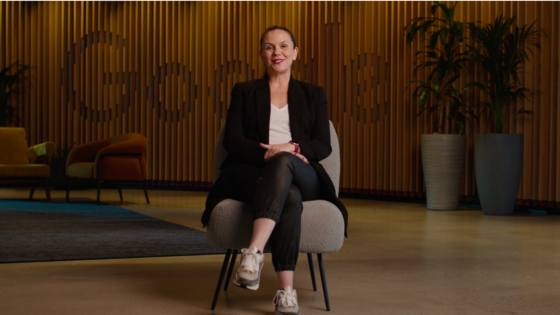In the ever-evolving realm of video marketing, the approach to crafting compelling content is far from one-size-fits-all. As Australia's leading video production company, we understand the significance of tailoring strategies to the unique demands of Business-to-Business (B2B) and Business-to-Consumer (B2C) landscapes. It’s time to break down what each of these business structures means when it comes to video marketing while understanding the distinctive strategic differences. Let's explore how video marketing takes on a different hue depending on the industry.
1. Strategic Objectives
B2B: Focuses on establishing expertise, building credibility, and nurturing long-term relationships. Your video marketing strategies often can include thought leadership content, product demonstrations, and case studies.
B2C: Primarily geared towards creating brand awareness, fostering emotional connections, and driving immediate conversions. Strategies may involve content around lifestyle content, user testimonials, and limited-time offers.
2. Content Personalisation
B2B: Tailored to address specific pain points, industry challenges, and professional development needs. Customisation is key to resonating with decision-makers.
B2C: Emphasises personal preferences, lifestyle choices, and emotional triggers. Content is designed to appeal to a broader audience with diverse interests.
3. Industry Relevance
B2B: Platforms like LinkedIn, industry conferences, and webinars are pivotal. Content often dives deep into technical aspects, trends, and best practices relevant to the business sector.
B2C: Social media channels (Instagram, Facebook, YouTube) dominate, with a focus on visually appealing, shareable content. Influencer collaborations can play a significant role in reaching the target consumer base.
4. Messaging and Tone
B2B: Emphasis on professionalism, expertise, and problem-solving. Content often adopts a formal and informative tone.
B2C: Prioritises relatability, entertainment, and the creation of an emotional connection. Content is generally more casual, engaging, and story-driven.
5. Conversion Journey
B2B: A longer, consultative sales process where videos serve as tools to educate and guide decision-makers through the buyer's journey.
B2C: Often a shorter, impulse-driven journey where videos aim to captivate attention and drive immediate action, whether it's making a purchase or sharing content.
6. Industry-Specific Considerations
B2B: Technical specifications, product functionality, and industry trends take centre stage. Educational content, expert interviews, and product showcases are commonly employed.
B2C: Lifestyle, user experiences, and visual appeal are paramount. Product demonstrations, user-generated content, and engaging storytelling are effective strategies.
Understanding the industry landscape is pivotal in devising an effective video marketing strategy. Plus by tailoring your approach to align with B2B or B2C dynamics, your videos can become powerful tools that not only speak to your audience but also drive tangible results within your specific sector. Whether you operate in the intricate world of B2B or the dynamic side of B2C, our end-to-end video production services are here to elevate your brand's storytelling. Contact us today, and let's collaborate to bring your industry-specific vision to life through the power of video.


-1.png)






